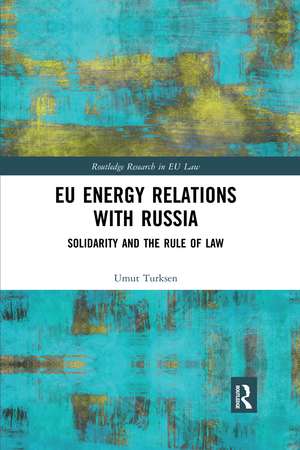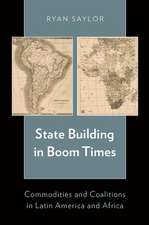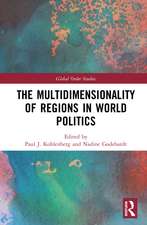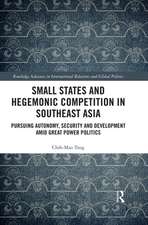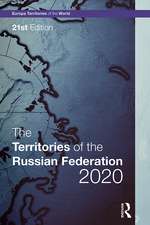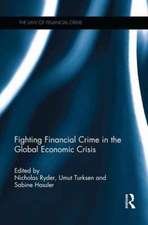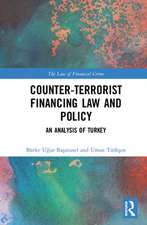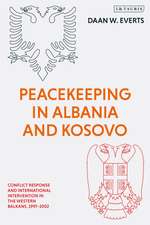EU Energy Relations With Russia: Solidarity and the Rule of Law: Routledge Research in EU Law
Autor Umut Turksenen Limba Engleză Paperback – 14 aug 2020
| Toate formatele și edițiile | Preț | Express |
|---|---|---|
| Paperback (1) | 389.66 lei 6-8 săpt. | |
| Taylor & Francis – 14 aug 2020 | 389.66 lei 6-8 săpt. | |
| Hardback (1) | 762.97 lei 6-8 săpt. | |
| Taylor & Francis – 6 mar 2018 | 762.97 lei 6-8 săpt. |
Din seria Routledge Research in EU Law
-
 Preț: 343.23 lei
Preț: 343.23 lei -
 Preț: 359.66 lei
Preț: 359.66 lei -
 Preț: 326.49 lei
Preț: 326.49 lei - 18%
 Preț: 1007.36 lei
Preț: 1007.36 lei - 18%
 Preț: 1057.09 lei
Preț: 1057.09 lei - 18%
 Preț: 1069.71 lei
Preț: 1069.71 lei - 26%
 Preț: 820.73 lei
Preț: 820.73 lei - 26%
 Preț: 763.95 lei
Preț: 763.95 lei - 12%
 Preț: 300.29 lei
Preț: 300.29 lei - 26%
 Preț: 847.73 lei
Preț: 847.73 lei - 12%
 Preț: 299.87 lei
Preț: 299.87 lei - 12%
 Preț: 299.52 lei
Preț: 299.52 lei - 12%
 Preț: 299.52 lei
Preț: 299.52 lei - 18%
 Preț: 1001.84 lei
Preț: 1001.84 lei -
 Preț: 377.45 lei
Preț: 377.45 lei -
 Preț: 414.39 lei
Preț: 414.39 lei -
 Preț: 468.36 lei
Preț: 468.36 lei - 12%
 Preț: 300.09 lei
Preț: 300.09 lei -
 Preț: 391.39 lei
Preț: 391.39 lei - 12%
 Preț: 300.49 lei
Preț: 300.49 lei - 18%
 Preț: 1068.91 lei
Preț: 1068.91 lei -
 Preț: 192.42 lei
Preț: 192.42 lei -
 Preț: 416.22 lei
Preț: 416.22 lei - 12%
 Preț: 299.45 lei
Preț: 299.45 lei - 18%
 Preț: 997.90 lei
Preț: 997.90 lei - 18%
 Preț: 996.96 lei
Preț: 996.96 lei -
 Preț: 436.14 lei
Preț: 436.14 lei - 26%
 Preț: 762.97 lei
Preț: 762.97 lei -
 Preț: 404.24 lei
Preț: 404.24 lei - 18%
 Preț: 711.78 lei
Preț: 711.78 lei -
 Preț: 281.03 lei
Preț: 281.03 lei - 18%
 Preț: 1061.57 lei
Preț: 1061.57 lei - 18%
 Preț: 1119.87 lei
Preț: 1119.87 lei - 25%
 Preț: 825.62 lei
Preț: 825.62 lei
Preț: 389.66 lei
Nou
Puncte Express: 584
Preț estimativ în valută:
74.57€ • 77.95$ • 63.01£
74.57€ • 77.95$ • 63.01£
Carte tipărită la comandă
Livrare economică 07-21 martie
Preluare comenzi: 021 569.72.76
Specificații
ISBN-13: 9780367592486
ISBN-10: 0367592487
Pagini: 179
Dimensiuni: 156 x 234 x 10 mm
Greutate: 0.45 kg
Ediția:1
Editura: Taylor & Francis
Colecția Routledge
Seria Routledge Research in EU Law
Locul publicării:Oxford, United Kingdom
ISBN-10: 0367592487
Pagini: 179
Dimensiuni: 156 x 234 x 10 mm
Greutate: 0.45 kg
Ediția:1
Editura: Taylor & Francis
Colecția Routledge
Seria Routledge Research in EU Law
Locul publicării:Oxford, United Kingdom
Public țintă
Postgraduate and UndergraduateCuprins
Introduction
Chapter 1 - Russia as an important supplier of the energy for the EU
Chapter 2 - Legal Framework for the EU external energy policy
Chapter 3 - Member States’ Practices
Chapter 4 - The legal framework for the EU – Russian energy relations
Chapter 5 - Future Prospects
Conclusion
Chapter 1 - Russia as an important supplier of the energy for the EU
Chapter 2 - Legal Framework for the EU external energy policy
Chapter 3 - Member States’ Practices
Chapter 4 - The legal framework for the EU – Russian energy relations
Chapter 5 - Future Prospects
Conclusion
Descriere
This book provides an analysis of the legal framework in which the energy trade between the European Union and the Russian Federation has been conducted. Using case studies of eight member states, it critically examines the EU’s ability and the duty of its Member States to conduct their energy trade in accordance with the principle of solidarity
